May 10-14
A look at the main headline-grabbing events this past week

Corina Cristea, 15.05.2021, 12:36
Relaxation measures come into force on May 15th, thanks to a downward infection trend in Romania
The COVID-19 pandemic maintains its downward trend in Romania, the infection rate falling, this week, below the threshold of 1.5 cases per thousand inhabitants accumulated in 14 days. Further urging people to get vaccinated, in order to meet the targets set to ensure herd immunity, the authorities decided that measures can be relaxed as of 15 May. A step-by-step relaxation, according to the head of state Klaus Iohannis, who announced on Thursday a timetable that includes steps until September 1. A reassessment will take place at the end of summer to establish the measures to be put in place in autumn.
Klaus Iohannis: As of May 15th, wearing a mask outdoors is no longer mandatory, with a few exceptions, such as in markets, fairs or public transport stops. The second measure to come into force immediately is the elimination of circulation restrictions at night. Also, shops will resume their normal opening hours. Also as of this weekend, open-air sports events are allowed at 25% seating capacity.
Other measures will be taken on June 1st, starting with an increase in the allowed accommodation capacity, number of people in restaurants and participants in weddings or other festive events. As regards schools, most pupils are likely to go back to school physically in the following weeks, the president said. -Jingle –
PM Florin Citu explained in Brussels Romania’s priorities, as established under the National Recovery and Resilience Plan
This week, Romania’s PM Florin Citu has met in Brussels with several members of the EC to explain Romania’s priorities, as established in the National Recovery and Resilience Plan. The Government keeps its commitment to ensuring a sustainable post-pandemic growth, with focus on reform and investment, Florin Citu said:
The NRRP has two components. One focuses on reforms, which the Government committed to under its governing program, the fiscal-budgetary strategy and the convergency program. The other one is the investment component. The resources that Romania will get will go to the economic sectors that are most productive. Florin Citu
We had 3 major goals for this visit, to clarify and agree on major reforms with the European Commission, to establish that Romania will ask for all 29 billion, including loans – at this time only Romania and Italy will access the entire amount – and establish the most advanced investment components and what is left to work on the others. We have reached all 3 goals, said Cristian Ghinea, Minister of European Investments and Projects, who accompanied the Prime Minister to Brussels.
Spring economic forecasts on Romania
The Romanian economy registered a less severe fall last year than expected, and the return to the pre-crisis economic activity level is likely to take place before the end of this year, according to the European Commission’s spring forecast. Noting that there is still a degree of uncertainty due to the unpredictable evolution of the pandemic and due to potential problems in the supply of vaccines, the European executive estimates that Romania’s Gross Domestic Product will increase by 5.1% this year and by 4.9% in 2022.
These positive signals are extraordinarily gratifying, but I reiterate the call for caution – we must maintain the record pace of public investment, while controlling budget expenditures for Romania to record sustainable economic growth, Finance Minister Alexandru Nazare said. According to the Commission, Romania’s budget deficit will decrease to 8% of the GDP this year and 7.1% of the GDP next year, from a level of 9.2% last year. Inflation is expected to rise slightly to 2.9% this year, followed by a decline to 2.7% next year.
The 5th anniversary of the missile defense system in Deveselu
In Bucharest, the celebration of 5 years since the missile-defense system in Deveselu (southern Romania) became operational was marked by an event organized by the Senate’s Defense Committee. The Romanian Minister of Foreign Affairs, Bogdan Aurescu, recalled that the Deveselu facility represents a Romanian-American contribution to collective defense within NATO. At the same time, it represents an extremely important dimension in the security and military cooperation between Romania and the United State, within the Strategic Partnership for the 21st Century concluded by the two states, the minister added. Bogdan Aurescu also referred to the B9 Summit hosted on Monday in Bucharest by President Klaus Iohannis, a summit also attended via videoconference by the US President Joe Biden. The event in Bucharest also marked the 10th anniversary of the signing of the Agreement between Romania and the USA on the location of the ballistic missile defense system.
The Romanian Foreign Ministry monitors the situation in Israel and the Palestinian territories
The Romanian Ministry of Foreign Affairs has strongly condemned the rocket fire launched from the Gaza Strip, targeting civilian areas in Israel, and deeply regrets the loss of life in recent days. The head of diplomacy in Bucharest, Bogdan Aurescu, set up a working group, which met urgently to permanently monitor and assess the situation in Israel and the Palestinian territories, as well as to identify the main directions of action to support Romanians in the area affected by conflict. The Romanian Ministry of Foreign Affairs has raised the alert level for the area affected by the conflict between Israel and the Palestinian territories and recommends avoiding travel to the region. (MI)




























